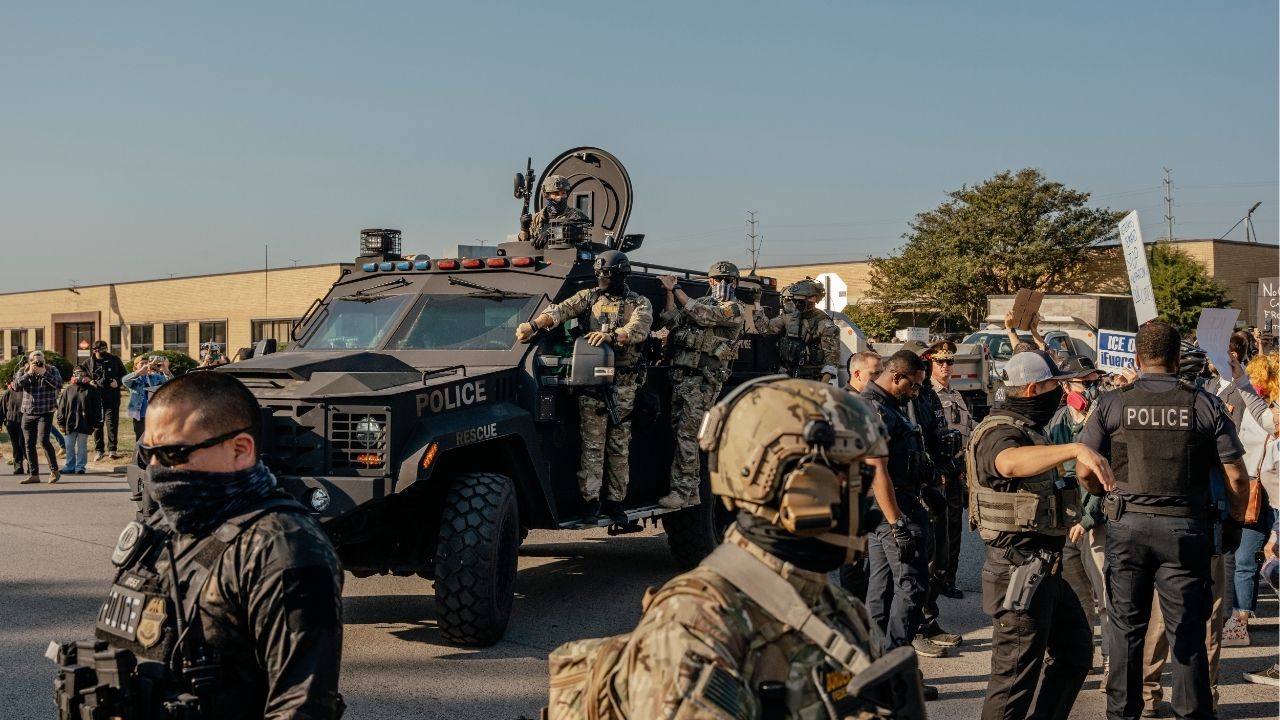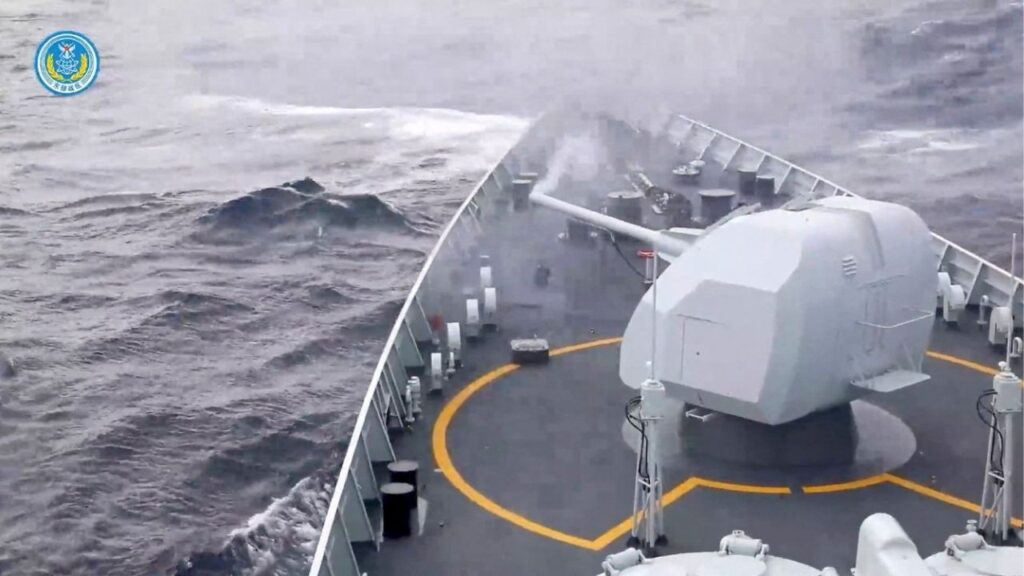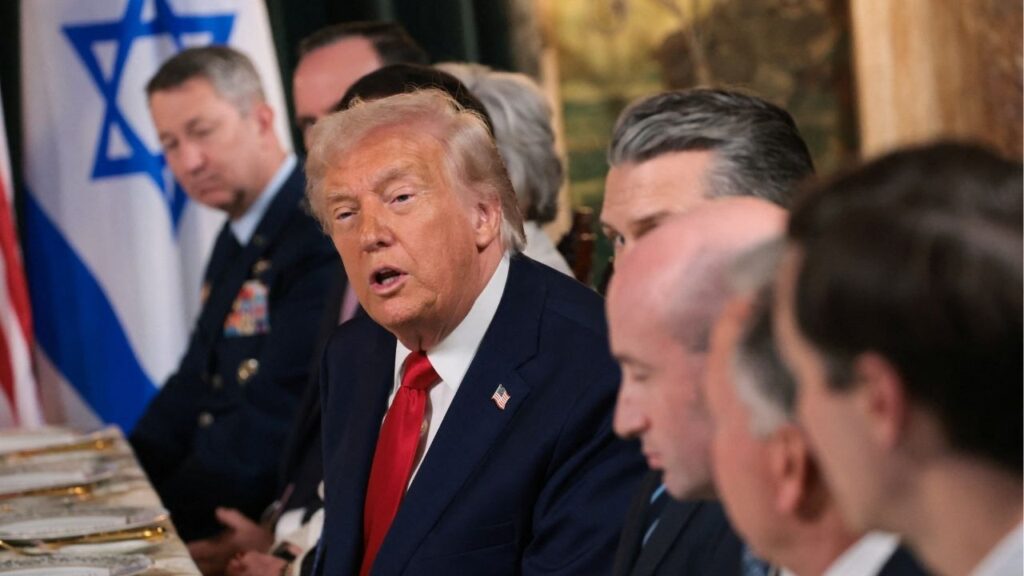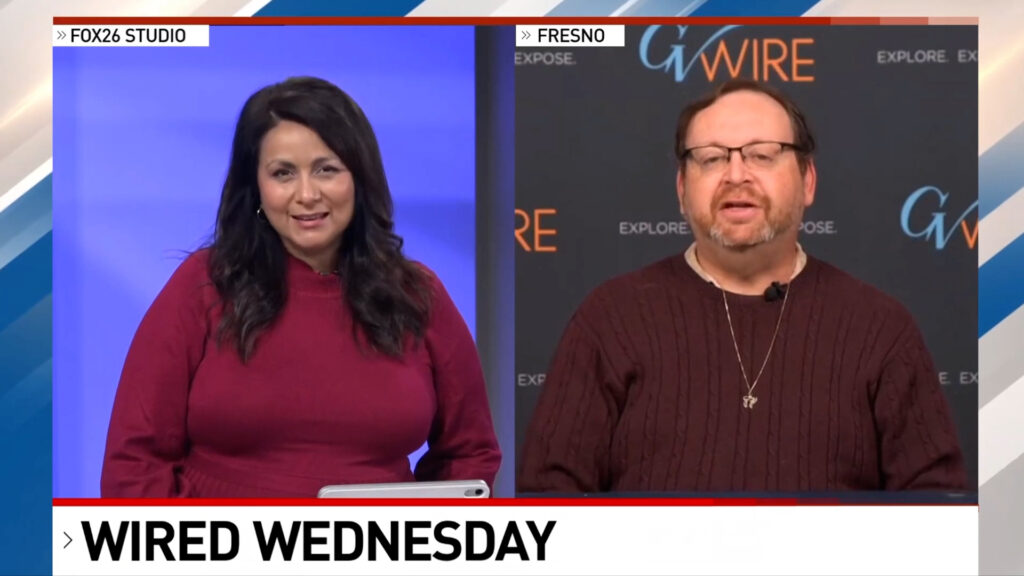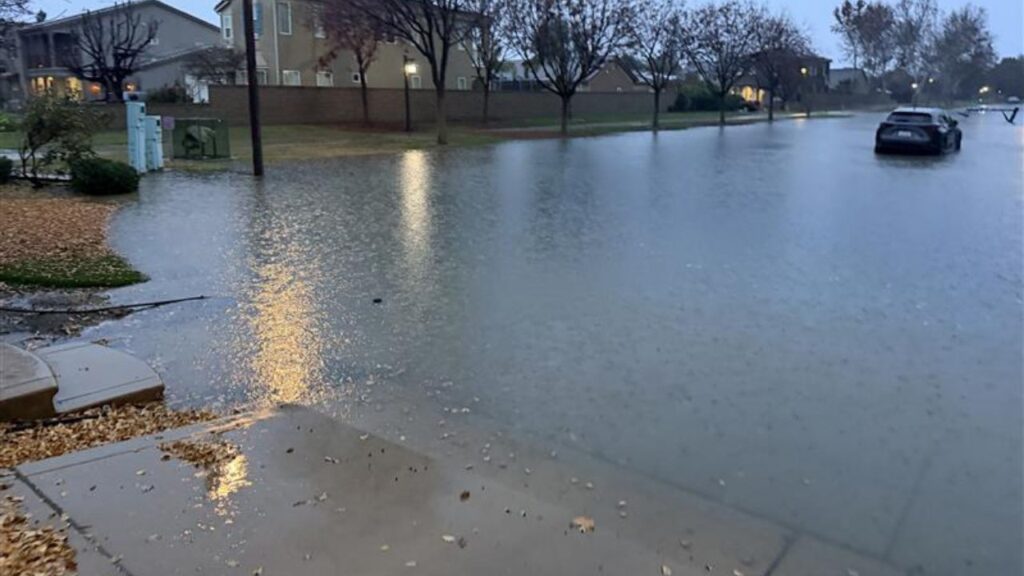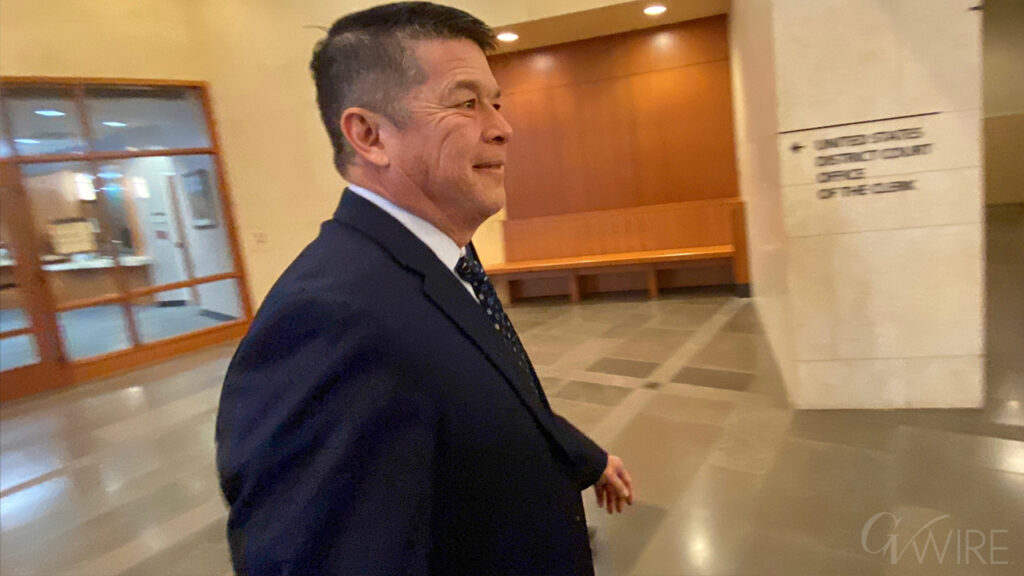An armored vehicle carrying members of a Immigration and Customs Enforcement Special Response Team pulls up by a crowd of protesters outside of a U.S. Immigration and Customs Enforcement processing facility in Broadview, Ill., on Friday, Oct. 3, 2025. Gov. JB Pritzker of Illinois said on Monday that the state would use every lever at its disposal to fight the Trump administration’s deployment of Texas National Guard troops to the Chicago area, which he labeled an “unconstitutional invasion of Illinois” by the federal government. (Jamie Kelter Davis/The New York Times)

- A federal judge allowed Trump’s deployment of National Guard units to Illinois to proceed, despite Governor Pritzker calling it unconstitutional.
- Texas Guard troops were reported en route to Chicago, while similar deployments to Portland face legal obstacles and court challenges.
- Trump threatened to invoke the Insurrection Act, escalating tensions as local leaders push back against federal troop actions.
Share
|
Getting your Trinity Audio player ready...
|
A federal judge Monday declined to block the deployment of National Guard units to Illinois, a mobilization that the state’s governor, JB Pritzker, labeled an “unconstitutional invasion” by the federal government, even as President Donald Trump threatened to assume emergency powers to bypass court battles and send in the troops.
The judge’s ruling in Illinois, which allows the Trump-ordered deployment to move ahead for now, came as a military official said 200 troops from the Texas Guard were headed to Illinois. A similar effort to deploy Texas troops in Portland, Oregon, has been blocked by a judge for now.
As the legal battles intensified, both sides engaged in an increasingly caustic war of words, with administration officials accusing protesters in Portland of engaging in insurrection, and officials in Chicago accusing federal forces of attacking demonstrators without provocation.
Trump said late Monday that he was considering invoking the Insurrection Act, which would allow him to deploy troops despite any court orders to the contrary. “We have an Insurrection Act for a reason,” he said, adding, “I’d do that if people were being killed and courts were holding us up, or governors or mayors were holding us up.”
Pritzker said that Illinois officials would use every lever at their disposal to fight the administration. “Their plan all along has been to cause chaos, and then they can use that chaos to consolidate Donald Trump’s power,” he warned in an afternoon news conference.
Here’s What Else to Know:
— Oregon appeal: The Trump administration asked an appeals court to let it send troops from California or Texas to Portland, despite a federal judge’s order late Sunday blocking deployments from any state to the city. The judge was appointed by Trump. It was unclear how quickly an appeal might be heard.
— Chicago hearing: Judge April M. Perry of U.S. District Court in northern Illinois, a Biden appointee, pressed Trump administration lawyers for more information about National Guard assignments in the state, describing herself as “very troubled by the lack of answers.” But she said she needed time to review the case before issuing any orders, setting a hearing for Thursday.
— Deployment timetable: A military official said 200 troops from the Texas National Guard were on their way to Chicago on Monday, and Trump administration lawyers told Perry they would likely be deployed in the region Tuesday or Wednesday. Illinois National Guard units are also expected to report for duty Tuesday, the lawyers said.
— Local pushback: Chicago Mayor Brandon Johnson said he would establish “ICE-free zones” to prevent federal agents from staging operations without a warrant. And officials in Broadview, Illinois, a suburb west of downtown Chicago, issued an executive order restricting protests at a federal immigration facility to daytime hours, saying it was in response to federal agents “needlessly deploying tear gas, pepper spray, mace and rubber bullets.”
— “Like a war zone”: Trump on Monday again described Chicago as a crime-ridden “war zone.” And in a legal filing, his administration depicted Portland as a hotbed of violence and chaos, with protests against immigration enforcement efforts there posing “a sufficient impediment to the execution of federal laws and danger of a rebellion.” Conditions on the ground in both cities do not match those descriptions.
—
This article originally appeared in The New York Times.
By Julie Bosman, Shawn Hubler, Anna Griffin and Eric Schmitt/Jamie Kelter Davis
c. 2025 The New York Times Company


